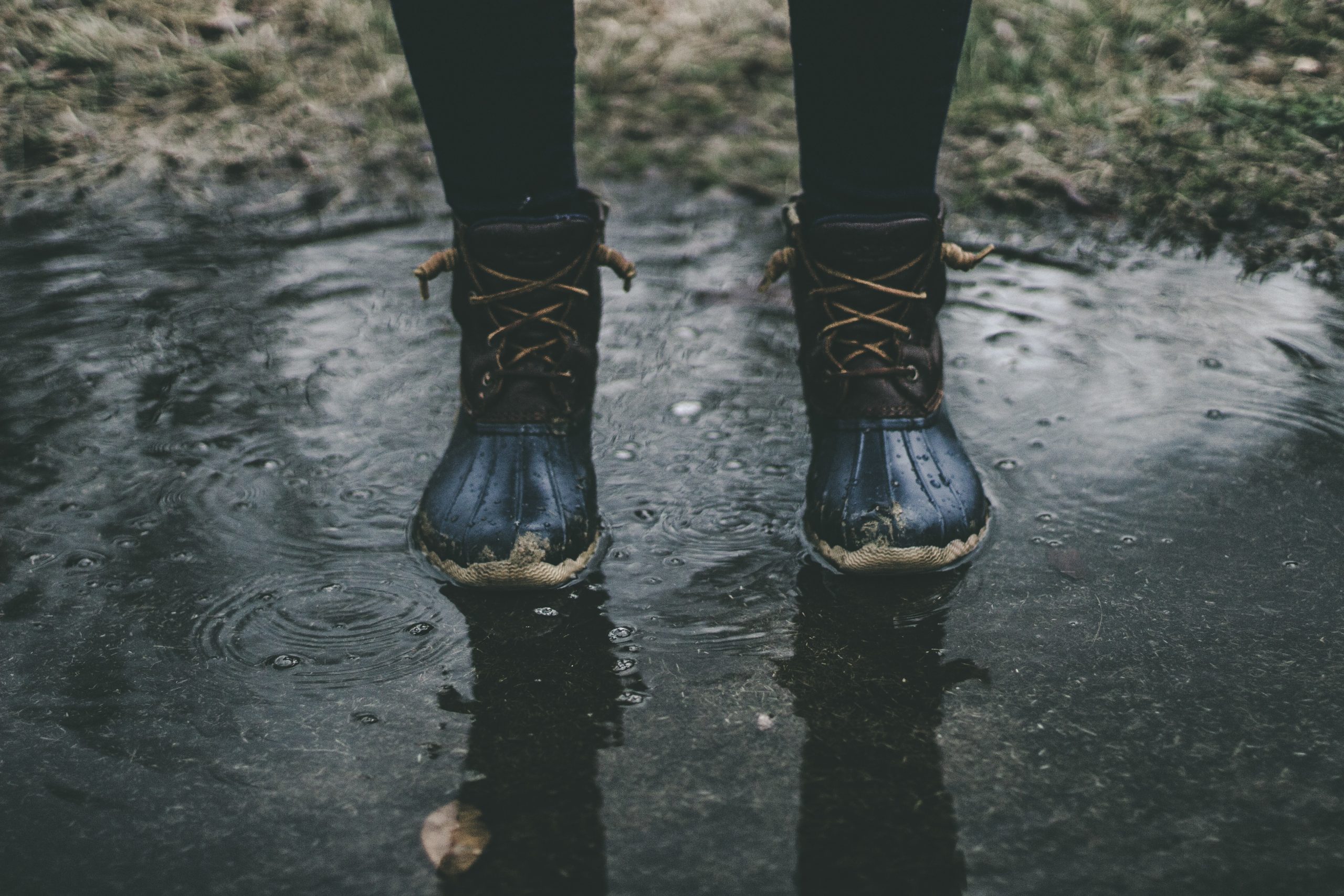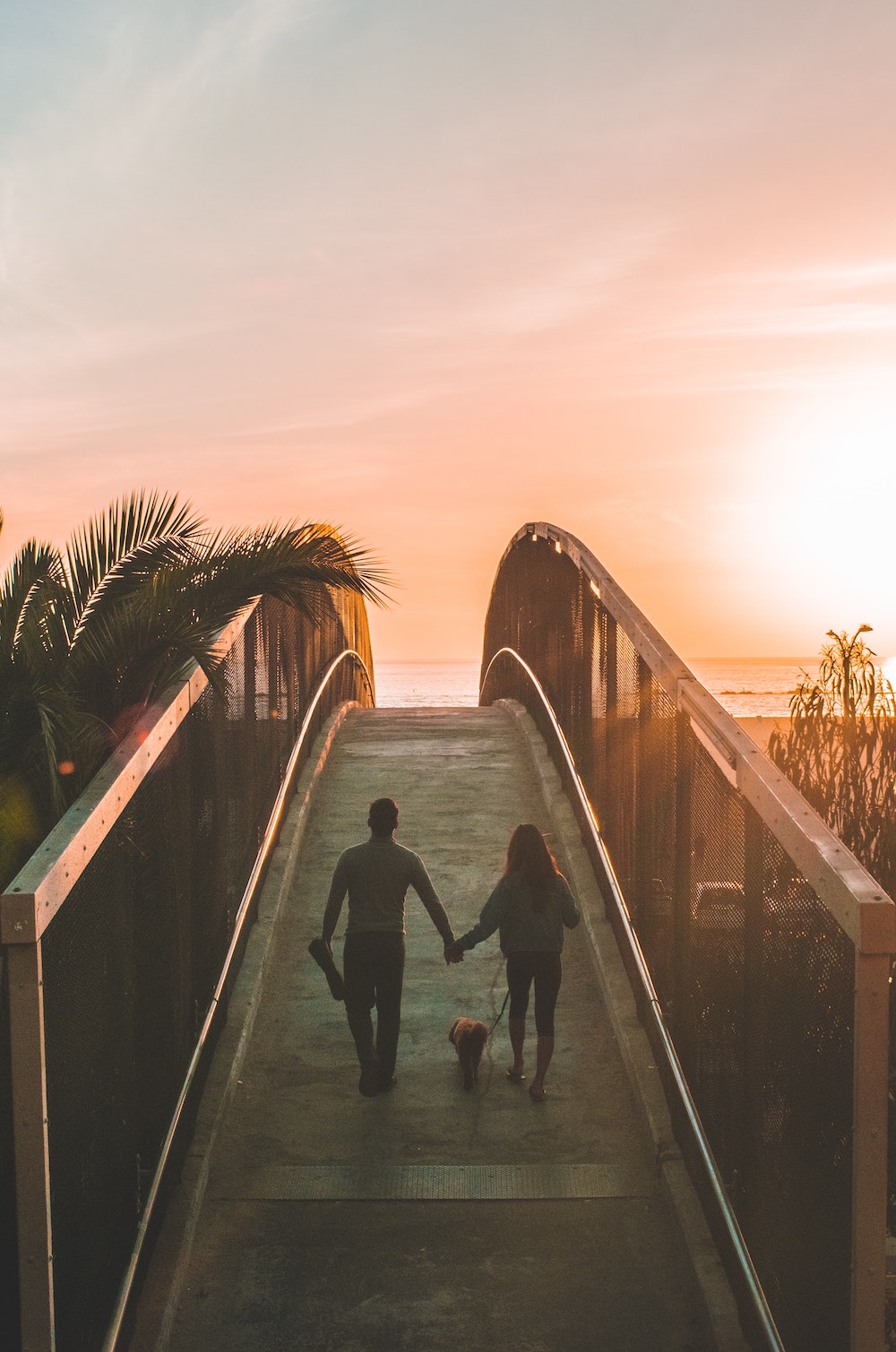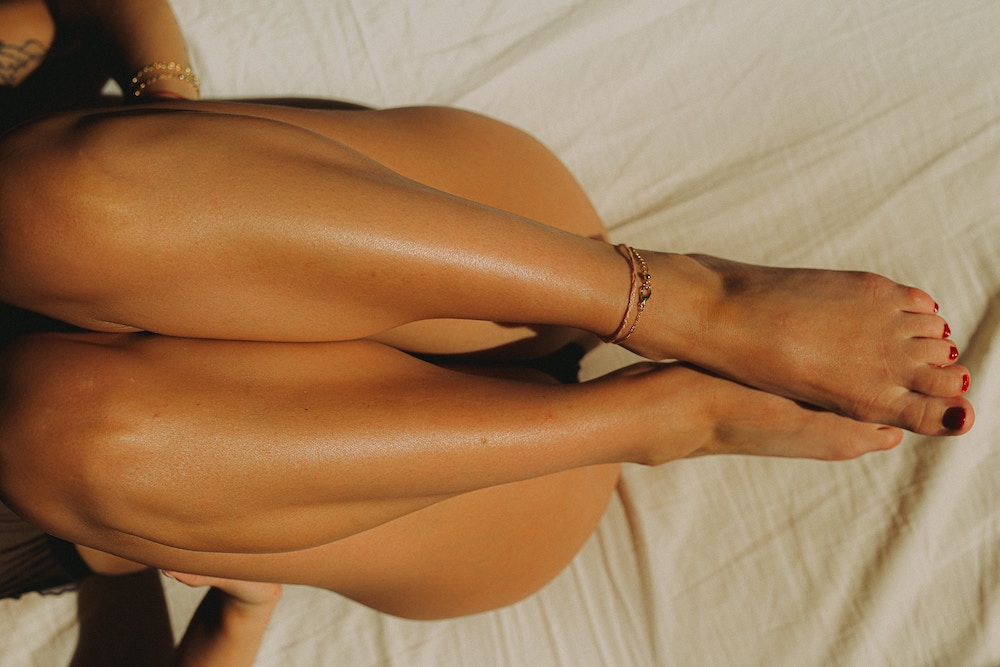
England will haunt me for a lifetime. Living there was a somewhat chaotic existence under skies marred by impenetrable swathes of grey. Not to say it was like that always, of course, but to me, it certainly felt that way. It was a classic case of right place, wrong person. A drizzly cocoon for some, perhaps; hygge-heaven, even; but not particularly nurturing for someone like me whose early life experiences taught her to associate “home” with eternal sunshine.
Let’s take five steps back and bring you up to speed so that this makes a little more sense. I’m British. At least, my passport and penchant for cups of tea and a good curry would indicate so. I like to complain about the weather and poke fun at my misfortunes and those of others. Similarly, I pass on the slapstick humor in favor of sarcasm so dry that it puts to shame the Arizona desert where I now find myself.
But I’m also very much not. British, I mean. In the recesses of my mind are large gaps in those things culturally relevant to British people because I mostly lived abroad until I was 15. These are references to musicians or TV shows that other Brits my age know and love, make jokes about, and enjoy revisiting, to which they’re met with a perplexed deer-in-headlights-esque stare from me in response to bringing them up while in my company.
“I’m not a complete and utter hermit!” I want to explain; it’s just that I genuinely don’t get it. I grew up in Morocco where we got about three TV channels on a good day, and so instead spent most of my time outside running wild, or speaking French with locals and mixing with kids from all over the world at the international school I attended.
My memories of Morocco are of bustling markets, or medinas as they’re called there, rich in conversation, color, and fragrance. Or rghaif, which are delicious, spiced pancakes, being rolled by the smiley, toothless chef-extraordinaire who set up his hotplate on the corner of the market. We’d grab one wrapped in paper, soaked through with grease, and savor the flavors as we moseyed elsewhere to pick up bread or vegetables. Perhaps pay a visit to the bead shop where, if I was lucky, I’d beg my mum to buy me a small envelope of something gaudy that I might put to use in one of my creative endeavors. You know, typical 8-year-old activities.
My memories of those days are of shorts and t-shirts, bare feet, toes in the sand, and endless days of sunshine. Always sunshine. And just as it enveloped me in its warmth, I allowed it to permeate every cell of my body, calibrating my sense of normality. The dry heat and hibiscus. The towering sunflowers and argan trees waving gently in the breeze. Cumin and coriander. The essence of the kasbah.
Those days ended abruptly when my father’s work pulled us across the ocean to Washington D.C. when I was 10. I navigated those earlier adolescent years in Virginia where sunshine meant sweat and the winters came with snow. The comforting call to prayer of the local mosques that had helped me keep time in Rabat was replaced by advertisements for car insurance, mattresses, and junk food.
School was as school is and those years came with challenges as my family began to fall apart, parents headed in the direction of divorce. But there were also good times; days spent in or around the neighborhood pool during the summer months. I was an avid swimmer for much of my youth and derived immense pleasure from the simplicity of sunlight on the surface ripples and casual interactions with those similarly wrapped up in the ease of it all. The outdoors provided a much-needed escape from the indoors of home; the goings-on of which weren’t always pleasant.
Like all good things, the summer would eventually come to an end. The sun would lower in the sky and the leaves begin to rustle, turning myriad shades of copper. One year this coordinated with another move, back to the UK this time when I was almost 15; to Portsmouth, where dull, dreary, and austere clouds looked down on bitter plains and a coastline that blended seamlessly with a grey horizon. The sun’s cherubic face hidden behind blankets of severity; the heavens above mirroring much of the seriousness below.
Those first few months in England threw me one obstacle after another. The divorce finalized, home was in chaos, and my new school neglected to acknowledge the bullying that had become a daily onslaught. To make matters worse, the escape into the wilderness upon which I had always been able to rely no longer existed. Blades of grass trembled each morning while fresh dew settled on yet another night’s frost. The howling gales cleared brush from empty hollows, until but a shell remained. I could relate; sometimes there was numbness, and sometimes there was pain.
In my adult life, I would also live by the sea. In Plymouth, there were narrow, cobble-stoned streets lined with apothecaries, fish and chip shops, and pubs worthy of proper sailors. The “old world” Mayflower Steps where the pilgrims set sail for North America in 1620 attracted tourists far and wide for their historical significance. To me, they were a reminder of my own pilgrimage a decade prior to the New World and the things I’d lost when I had to say goodbye and return to the U.K. Plymouth was quaint and smelled pleasantly of the sea, but it was not for me.
What happened next did not occur by chance, nor was it a plan years in the making; the Arizona desert began whispering my name. It came first during sleep, then when awake, growing louder by the day until I started paying attention. Unsure of the significance but curious enough to pursue it, I decided to leave Plymouth and venture to the wild, wild west for a couple of months. Between the rattlesnakes and saguaros, under inky starlit skies, I found nirvana. Adventure danced over a landscape of serenity; a stillness that makes one stop and turn inward without fear of being left behind. There was a bounty of space tucked into a world alien and familiar all at the same time.
I returned to the U.K., taking with me memories of crystal springs, petroglyphs, and all the things that could have killed me, but didn’t while I was roaming around the desert. It was time to try Bristol this time; 23 years old and following the protocol of “work hard, play harder” in a cultural hub less chaotic than London, but with just as much art.
It was nice for a time and I did what I do best: explored (another) new place, made friends, lived, loved, laughed, but eventually longed for what was missing. Put simply, it was the sun that I missed more than anything. A yearning for warmth to grace my skin and a welcome relief from the blanketed clouds overhead.
It was a dreadful thing: those endless days of oppressive gloom. Treks to and from work over vast swathes of earth saturated with days’ worth of rainfall until the water and soil formed an inseparable slosh that was welcomed only by the wading birds. My shoes had to be practical and so were often rainboots (or wellies as we call them) squelching through the mud and serving as a depressing metronome, keeping tabs of an existence that could only be described as a drudgery at that point.
Who was I without the sun? Day after day, dawns were indiscernible from dusk; the sun’s cherubic face beaming down elsewhere, perhaps. She was always elsewhere.
I’d heave my legs, which felt like two-tonne towers, through the mud with a pleading to carry on. My neck would be sore from the desperate attempt to cover my scarlet cheeks and chin from the horizontal drizzle that seemed to soak the cuffs of my hood and sleeves inside and out, sending a chill up to my core until I’d be convinced that even my organs were frozen and dripping.
Could I melt from the inside out, I’d wonder, before seeping sinew and cell into the marshland, a puddle of hopes and dreams. The tenuous threads of meaning were wearing thin by year five in the city, doing the daily slog and losing myself in the running waters that always found their way out to sea. How could a person—an environmentalist, by nature—find herself so entirely at odds with the soil and water and air all too gracious in their efforts to provide for her? Fertile, but futile England, a farmer’s oasis, in many respects, rich in arable land and surrounded by bountiful seas. These things—this life—it still was not me.
To be in one’s body and feel the currents of purpose and pleasure entirely at a standstill is devastating. But I was stagnant, contained within a glass box impenetrable from the outside in and inside out. My spirit was brittle, under attack from grey turbulence laughable and tame and at the same time relentless in its pursuit to wash me away. The rain: it was a cursed oppressor hell-bent on annihilation. Nothing more, nothing less.
During all this time, through all of the peaks or troughs, I’d think about Arizona. The sun, the mighty saguaros, the relentless heat that put me in my place and evoked a sense of aliveness, somehow. I’d think of the Chiricahua Mountains and the time that I dragged a tent up into them, trekking for hours, careful to make a bear bag but not sleeping a wink for fear I’d be eaten alive in the night anyway. And of the moss wall that I’d depended on for freshwater, only to find that it had run dry, and I was miles away from another source of hydration. I yearned for the exhilaration of feeling small and scared and respectful of nature functioning as it always had: in flux, wild, and unforgiving.

One day, I realized that I’d reached a crossroads in my life. I’d plateaued in my job, my long-term relationship had come to an end, and I was presented with an opportunity to strive for the big dream. In a “now or never” moment of fear, excitement, and acute awareness that it was perhaps the most loving thing I could do for myself, I took a leap of faith and left everything behind to start afresh in the desert I loved so much.
The first few days felt akin to an afterlife, of sorts, where flecks of dust filled the air instead of rain. The Sonoran Desert is a desiccant expanse under a cloudless sky. I’ve never known a thirst like the kind that unites us here, as we inhale raspy breaths void of even the faintest flecks of humidity. My attempt at cultivating English ivy on the patio over the last year has been an embarrassment to my heritage—dust is the only thing I know to be true now, forming a paste with sweat that stings my skin.
The buoyant sun that I’d romanticized quickly revealed herself as a brazen character when I got here. She’s nothing if not reliable, but best used in moderation. Vitamin D can be sought for free, no sprays or supplements needed. However, in these parts skin cancer is rife.
Oh, the sun, though—she never lets me down. For half the year she watches my attempts to dash from one air-conditioned cell to another, laughing at my fragility. During the winter, she welcomes my fawning at her feet while I repent for how wrong I was for cursing her during the relentless summer heat.
A plunge in the pool during the hottest months offers welcome relief from drought that plays tricks on one’s senses and sense of self. But the water is empty. False. Theft from the ground’s precious reserves. And the shower that follows is accompanied by guilt and a reminder of that which won’t come. The rain, it never comes.
Cloud—when they make a rare appearance overhead—are of the low-fat variety only. Dry wisps high in the sky are easily confused with the jet streams of planes carrying those with more sense than trying to live in a desert. To think that transplants, like myself, willingly plop ourselves in this waterless wilderness and expect it to treat us well. The audacity!
When the heat is at its most intense, the desperation to be enveloped in the wetness of water cannot be overstated. The yearning for it to wash away the monotony of day after day of heat so heavy that it renders one weary. A glance to the horizon during this time is met with a heat haze that guarantees more of the same. It’s exhausting and a reminder of the power of nature to follow through with whatever she has in mind.
But every now and then the breeze picks up, changes direction, and throws dust into one’s eyelashes as if to say, ‘I’ll give you something to write home about,’ before thunder rips through the swirling clouds above and the drops begin to fall.
First, they trickle timidly, settling the dirt with a delicate pitter-patter privy only to those nestled near the surface, lying eagerly in wait. Then, they beat the land harder, a monstrous symphony of sound.
Hummingbirds whiz and whirl in a territorial tirade feeding quickly, while there’s still time. The cactus wrens hop about jovially, shaking off juicy droplets that fall with purpose from the heavens now. Out with the old, in with the new.
A heady concoction of petrichor and creosote tantalize the nostrils as the downpour sets in, offering intoxication of the highest kind that pulls me down and lifts me up all at once, threatening to tear me apart at my core. I hadn’t thought much about the dizzying smell of rain until I’d experienced desert monsoons. My memories of Arizona didn’t have a smell attached to them other than that of Mexican food until I returned, years later, and that first rain teleported me back in time.
The creosote bush is an unassuming evergreen shrub covered in green leaves and small, yellow flowers. It’s found throughout the American arid lands and supports an assortment of desert critters, but it truly comes into its own when the rain falls and its scent permeates nostrils far and wide. It’s herbaceous, medicinal, and soothing, and comes hand in hand with a collective sigh of relief as the heavens open.
I can’t miss these storms for a moment; the aliveness that surges in synchrony with the chaos of it all. Electricity courses through my veins and those of all around me indulging in a rain dance that sees the heat plummet and with it the stress of all that has been. Who might I be after this is through, I can’t help but wonder to myself during a downpour? There’s no telling and I’m addicted to the possibility and potential.
Rain means different things in different places and in the desert, it is a giver of life and ecstasy, hell-bent on pleasure and a reminder of our fragility. There is solace to be had in that for those wild enough to call it home.
Get more like this—Sign up for our daily inspirational newsletter for exclusive content!
__
Photos by Zach Reiner on Unsplash and Kat Kennedy




